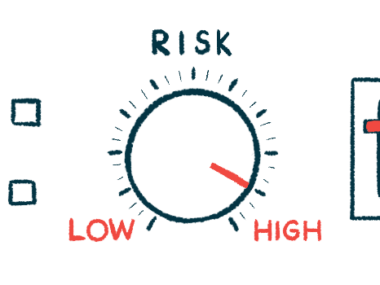AIRFLOW-3 Trial of Targeted Lung Denervation Assigns 100th Patient
Written by |

One hundred patients have been randomly assigned in Nuvaira’s pivotal AIRFLOW-3 clinical trial that will investigate the efficacy and safety of targeted lung denervation (TLD) to reduce exacerbations, or episodes of symptom worsening, of chronic obstructive pulmonary disease (COPD) in patients on optimal medical care.
Because of the COVID-19 pandemic, most of the trial’s activities were put on hold until June last year, when the Medical University of South Carolina became the first trial site to reopen.
The study (NCT03639051) is expected to enroll around 480 participants, 40 and older, at sites currently recruiting in the U.S., the U.K., Austria, France, Germany, and the Netherlands.
“Despite the healthcare system challenges of the COVID pandemic, treatment of COPD exacerbations remains a critical unmet need,” Dennis Wahr, MD, Nuvaira’s CEO, said in a press release. “We applaud our trial investigators for their unwavering support of the AIRFLOW-3 trial and their commitment to enrollment.”
TLD is a type of therapy that involves the use of a specialized catheter to deliver radio waves in the lungs. These waves target nerve cell transmission, causing the airways to relax and mucus production to diminish. The treatment is intended to make the airways more responsive to conventional medications, such as bronchodilators, and is not a substitute for these therapies.
Previous studies have shown TLD to be safe, well-tolerated, and long-lasting. A Phase 2 trial, called AIRFLOW-2 (NCT02058459), also demonstrated the therapy was able to lower the risk of hospitalizations due to exacerbations in patients with moderate to severe COPD.
More than 250 patients have been randomized or treated with TLD in clinical trials, including more than 50 patients in the U.S., according to the company.
AIRFLOW-3 seeks to determine if TLD is better than a sham procedure at reducing the frequency of moderate or severe exacerbations in people with COPD on optimal medical care. The sham procedure used as a control in the study involves the placement of the same catheter used in TLD, but no radio waves are delivered.
Besides exacerbations, other parameters will be assessed during the trial, including lung function, quality of life, and hospitalization rates.
On Aug. 11, the 100th patient was randomly assigned in the trial by Pallav Shah, MD, at the Royal Brompton Hospital in London.
“We are thrilled to be part of AIRFLOW-3, and to build on the knowledge and experience with the therapy which has the potential to alter the clinical trajectory for COPD patients with persistent exacerbations,” Shah said.
“We are proud to help Nuvaira and our colleagues celebrate this milestone and look forward to offering TLD as a therapeutic option for many of our COPD patients who struggle to maintain clinical stability on routine pharmacotherapy,” he added.




